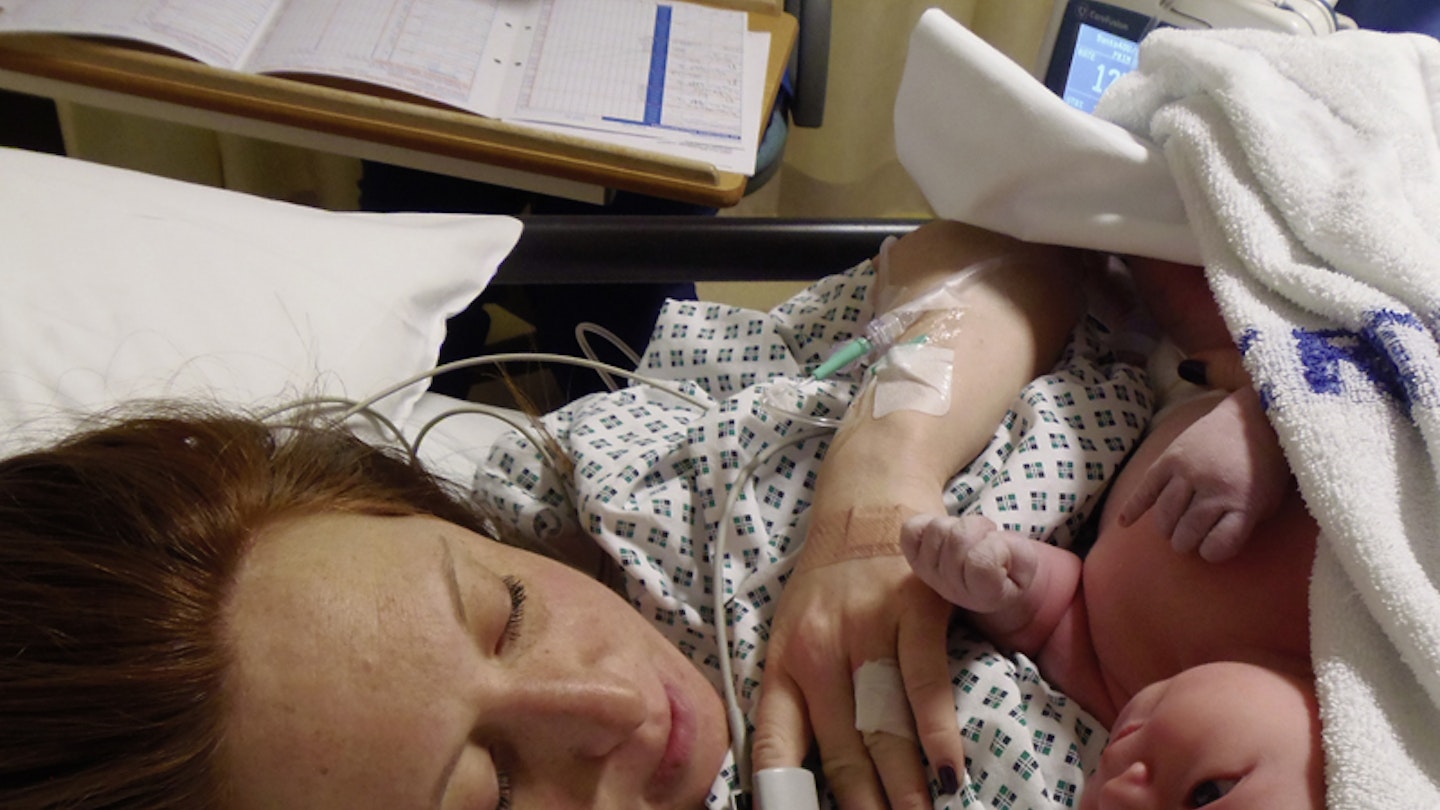Caroline Haworth, 32, lives in Lancashire, with husband Rick and their children Bella, two, and Ethan, 12 weeks.
My first baby was born exactly one week past her due date. So when I was pregnant again, I wasn’t concerned when my due date passed by and nothing happened. I’d read up on vaginal birth and decided I didn’t want to be induced because it can lead to intervention. A water birth in a midwife-led unit was what I wanted, even if it meant waiting to go into spontaneous labour.
It was only when I went past the one-week point that I began to feel frustrated. The calls and texts from friends asking if I was in labour yet started to grate. Rick and I went for walks and had a curry. I drank raspberry-leaf tea and sat on my birthing ball, encouraging my baby into the right position. But still I felt no twinges.
Two weeks past my due date, I had an appointment with a consultant to discuss my options. The policy is to book mums in for induction at 14 days overdue, but we were told that I could still try for a birth with no intervention if I went to the midwife-led birthing centre later that day to have my waters broken. Then I was checked, only to find I was already 4cm dilated. I was surprised, thrilled and relieved.
Rick and I arrived at the birthing centre at 8pm. It was spacious and quiet. I was happy to see a birthing pool in the corner of my room.
I concentrated on breathing deeply to manage the discomfort when the midwife broke my waters.
I concentrated on breathing deeply to manage the discomfort when the midwife broke my waters. There was a huge gush. Within a few minutes I felt my first proper contractions. They were intense. I paced the room, while Rick got me to focus on the natal hypnotherapy techniques I’d learnt, which helped me to stay positive and calm. At 10pm, the midwife started monitoring my contractions. They weren’t as regular as she’d have liked. Plus, I was still only 4cm dilated.
‘We need to see progress by midnight, or we’ll have to speed things up,’ she said. By 1am I’d resigned myself to having a syntocinon drip to induce my labour. I just wanted to do what was best for my baby.
Rick held my hand as I breathed through the contractions, which were coming thick and fast. Pain relief came via a low-dose injection of diamorphine. Three hours later, it started to wear off, so I asked for an epidural. Feeling its numbing effect was such a relief!
By 5am the midwives began to be concerned. ‘The baby’s oxygen levels are falling, so we need to get him out,’ one said. I needed a c-section, an option that hadn’t occurred to me. My epidural was topped up. The staff chatted calmly to me. I felt my anxiety reduce. As I lay back, with a screen in front of my chest, I felt a strange but painless tugging sensation. Within a few minutes, the doctor shouted, ‘baby’s here!’
‘It’s a boy,’ Rick said. Our baby was passed to me for a cuddle and I marvelled at how beautiful and big he was – 9lb 6oz!
Waiting so long for Ethan was definitely worth it. Part of me will always wonder what would have happened if my waters hadn’t been artificially broken. But the most important thing is that my baby is healthy.
